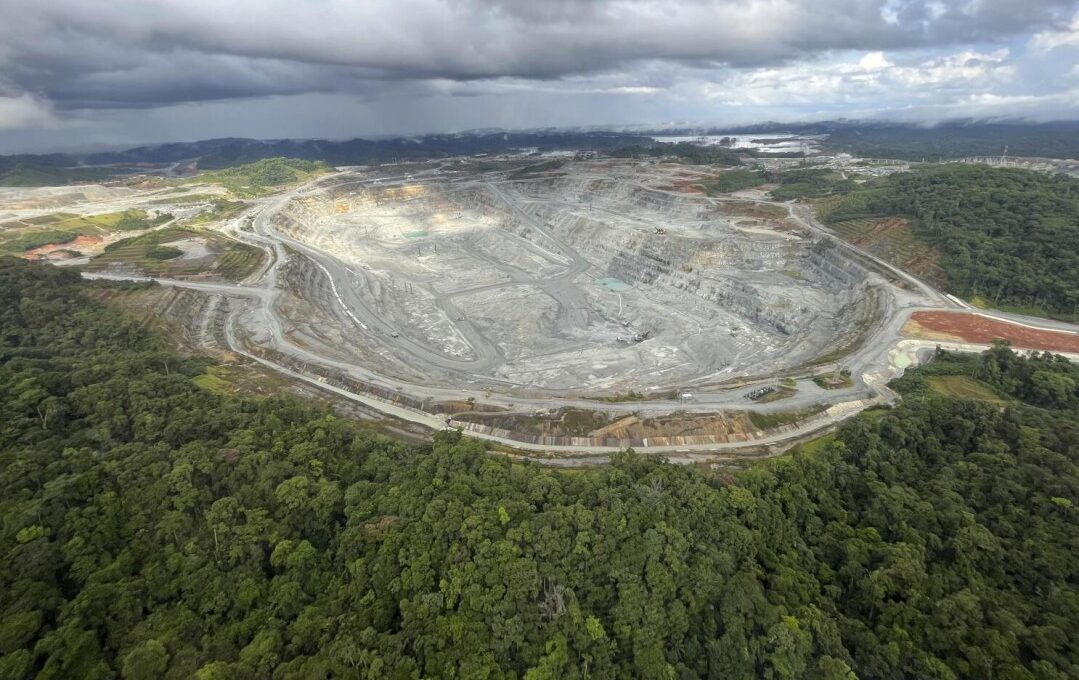One of the central messages that we convey to automakers and other large-scale purchasers of battery minerals is the importance of ensuring that their suppliers’ mining projects operate with the highest human rights and environmental standards possible. One of the biggest risks to the security and stability of any supply chain are poor environmental and human rights practices.
This month two mines were shut down by courts in Guatemala and Panama, proving this point better than any study. In Panama, the Supreme Court invalidated the lease of the Cobre Panama copper mine, which supplied 1.5 percent of the world’s copper, a key mineral for the energy transition. The public resistance to this project, which caused devastating water pollution and failed to deliver fair returns for the people of Panama, led Panamanian lawmakers to close the mine and ban all future mining projects.
Just weeks later, the Fenix mine in eastern Guatemala (the country’s largest nickel mine – another key battery mineral) was closed because of a court order from the Inter-American Court of Human Rights. The court found that the Guatemalan government had violated the rights of the Indigenous Q’eqchi’ people to property and consultation by allowing mining on lands where they had resided for centuries.
Both of these cases are likely to result in enormous losses for the governments of Panama and Guatemala – Panama faces shocking arbitration claims of up to $50 billion, potentially the largest arbitration claim in world history – as well as for the companies that held the leases for these mines. The people of Panama who fought back against the degradation of their water supply face a loss of up to five percent of their GDP. And companies that rely on the minerals sourced from these mines can expect disrupted supply chains and rising mineral costs.
Amazon Watch highlights even more examples of the legal and financial risks of ignoring Indigenous rights, writing that: “The continuation of projects without obtaining FPIC can result in major delays due to domestic or international court decisions requiring a corporation to regress to an earlier stage in the development of the project or to perform additional environmental analysis to adequately consult affected communities.”
Everyone benefits when strong responsible mineral sourcing standards are in place. The OECD Due Diligence Guidance for Responsible Supply Chains of Minerals provides a standard that all mining companies should follow. The OECD recently published a briefing memo on the risks faced by mining companies and their customers and how responsible sourcing practices can protect companies from disruptions to the supply chain. Their analysis highlighted how growing demand for battery minerals is putting pressure on mining companies and mineral-rich nations alike, and urged companies to practice the highest standards of environmental and human rights protections, as a business decision. According to the OECD memo:
“Any perceived benefit in deprioritising short-term or localised risks is likely to diminish over time as the increased costs of ad hoc deal-making and corruption manifest into larger conflicts, impede investment, adversely impact communities and lead to unpredictable supply disruptions. This represents a significant cost, with a major mining project estimated to suffer costs of roughly US$20 million for every week production is delayed.”
There is a wealth of guidance available for mining companies and their customers on how to minimize risk to their operations. The Initiative for Responsible Mining Assurance Standard for Responsible Mining offers the only independent, third-party assessment of industrial-scale mine sites that is governed equally by the private sector, local communities, civil society, and workers. As well as assessment tools, the comprehensive IRMA standard also offers a blueprint for what responsible mining looks like in practice.
Lead the Charge also demands that mining companies obtain the Free, Prior and Informed Consent (FPIC) from Indigenous Peoples for mining projects on or near their lands. Doing so minimizes the risk of losses like the Solway Investment Group saw in the Fenix mine closure in Guatemala, and protects mineral consumers (like automakers) from reputational risk and supply chain disruptions. To avoid the reputational risk of harm to Indigenous communities and lands, automakers must publicly commit to ensuring that all their suppliers respect the right to FPIC.
If mining companies and their customers invest the time to obtain a social license to operate by ensuring that communities’ voices are heard, that mining projects actually benefit local communities, and that strict environmental and human rights standards are upheld, then everyone can benefit from the mining of the minerals needed for our collective transition to clean energy. Otherwise, as the OECD puts it:
“Without taking appropriate steps, the booming demand coupled with increased levels of tension and conflict globally will mean that it will become more difficult for companies to find accessible sources of supply of transition minerals and widen the investment gap…A zero-sum approach to securing mineral supplies can lead to a race to the bottom, involving heightened trade tensions, bidding wars, resource nationalism, protectionism and lowering of environmental, social and governance (ESG) standards that ultimately can undermine the security of these supply chains.”
